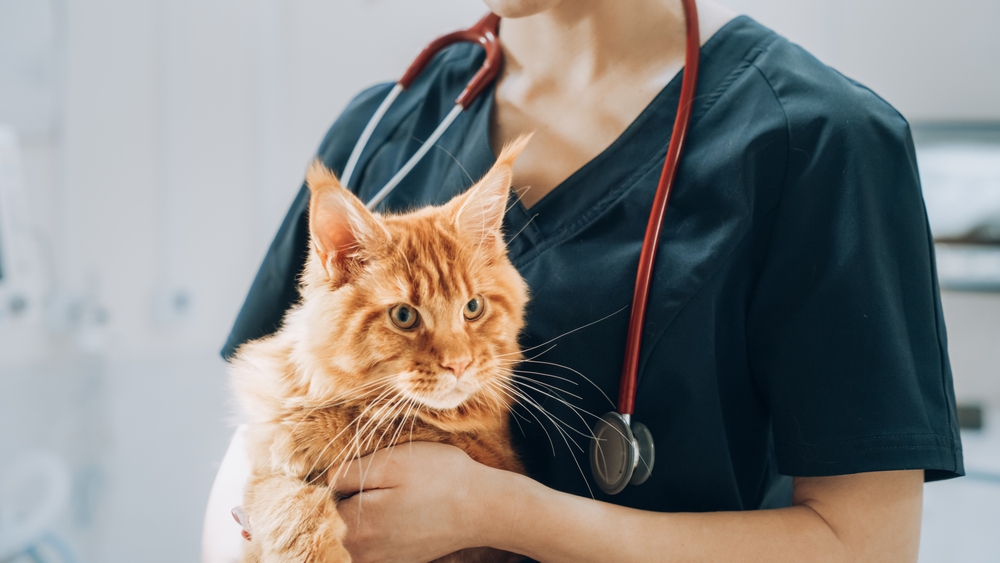
Top Signs Your Cat Needs Dental Care and How to Address Them
Dental health is a crucial component of your cat's overall well-being. Cats are susceptible to a range of dental problems, including plaque buildup, tartar accumulation, gingivitis, and even tooth loss. These issues can not only cause discomfort and pain for your cat but can also lead to more serious health problems, such as infections, organ damage, and even heart disease.
Common Dental Problems in Cats
Cats can experience a variety of dental problems, ranging from mild to severe. Some of the most common issues include:
• Plaque and Tartar Buildup: Plaque, a sticky film of bacteria, can accumulate on your cat's teeth, leading to the formation of hard, calcified deposits known as tartar. This can cause inflammation of the gums (gingivitis) and, if left untreated, can progress to more serious periodontal disease.
• Gingivitis: Inflammation of the gums, or gingivitis, is a common condition in cats. It can be caused by plaque and tartar buildup, as well as underlying health issues.
• Periodontal Disease: Periodontal disease is a progressive condition that can lead to the destruction of the tissues that support the teeth, including the gums, bone, and ligaments. This can ultimately result in tooth loss if left untreated.
• Tooth Resorption: This condition, also known as feline odontoclastic resorptive lesions (FORL), involves the gradual breakdown and destruction of the tooth structure, often leading to tooth loss.
• Dental Abscesses: Infections in the tooth or surrounding tissues can cause painful abscesses, which can be a serious health concern for your cat.
Recognizing the Signs of Dental Issues in Cats
Identifying the signs of dental problems in your cat is the first step in ensuring they receive the necessary care. Here are some common indicators that your cat may be experiencing dental issues:
· Bad breath (halitosis)
· Excessive drooling or difficulty swallowing
· Reluctance to eat or chew on one side of the mouth
· Red, swollen, or bleeding gums
· Pawing at the face or mouth
· Lethargy or decreased appetite
· Weight loss
If you notice any of these signs, it's important to schedule a veterinary appointment as soon as possible to have your cat's dental health evaluated.
The Importance of Professional Dental Care for Cats
Regular professional dental care is essential for maintaining your cat's overall health and well-being. Veterinary examinations can help identify and address dental problems before they become more severe. During these visits, your veterinarian will perform a thorough evaluation of your cat's teeth and gums, and may recommend additional treatments, such as scaling and polishing, to remove plaque and tartar buildup.
The Role of Regular Dental Cleanings
Cats should receive professional dental cleanings at least once a year, or more frequently if recommended by your veterinarian. These cleanings involve the use of specialized instruments to remove plaque and tartar from your cat's teeth, as well as a thorough examination to identify any underlying issues.
In cases of more advanced dental disease, your veterinarian may recommend periodontal treatments to address the underlying issues. In some cases, a tooth may be so severely damaged or diseased that it cannot be saved. In these situations, your veterinarian may recommend a dental extraction to remove the affected tooth and prevent further complications. Dental extractions are typically performed under general anesthesia to ensure your cat's comfort and safety.
Preventative Measures for Maintaining Cat Dental Health
While professional dental care is essential, there are also steps you can take at home to help maintain your cat's dental health:
• Brushing your cat's teeth: Regular tooth brushing, using a soft-bristled toothbrush and pet-safe toothpaste, can help reduce plaque and tartar buildup.
• Providing dental-friendly treats and chews: Certain treats and chews can help scrape away plaque and tartar from your cat's teeth.
• Feeding a dental-specific diet: Some cat foods are formulated with ingredients that help promote dental health.
• Scheduling regular veterinary check-ups: Annual or semi-annual veterinary check-ups can help identify and address dental problems early on.
By incorporating these preventative measures into your cat's routine, you can help maintain their dental health and prevent more serious issues from developing.
Book Your Pet’s Dental Exam with Community Pet Outreach Today
Maintaining your cat's dental health is a crucial aspect of their overall well-being. By understanding the common dental problems in cats, recognizing the signs of dental issues, and taking proactive steps to provide professional and at-home care, you can help ensure your feline friend enjoys a healthy, comfortable life.
To learn more about the dental health services available for your cat, contact Community Pet Outreach. We can provide personalized guidance and recommendations to help keep your cat's teeth and gums healthy. Visit our office in Lewisville, Texas, or call (972) 848-8930 to book an appointment today.





